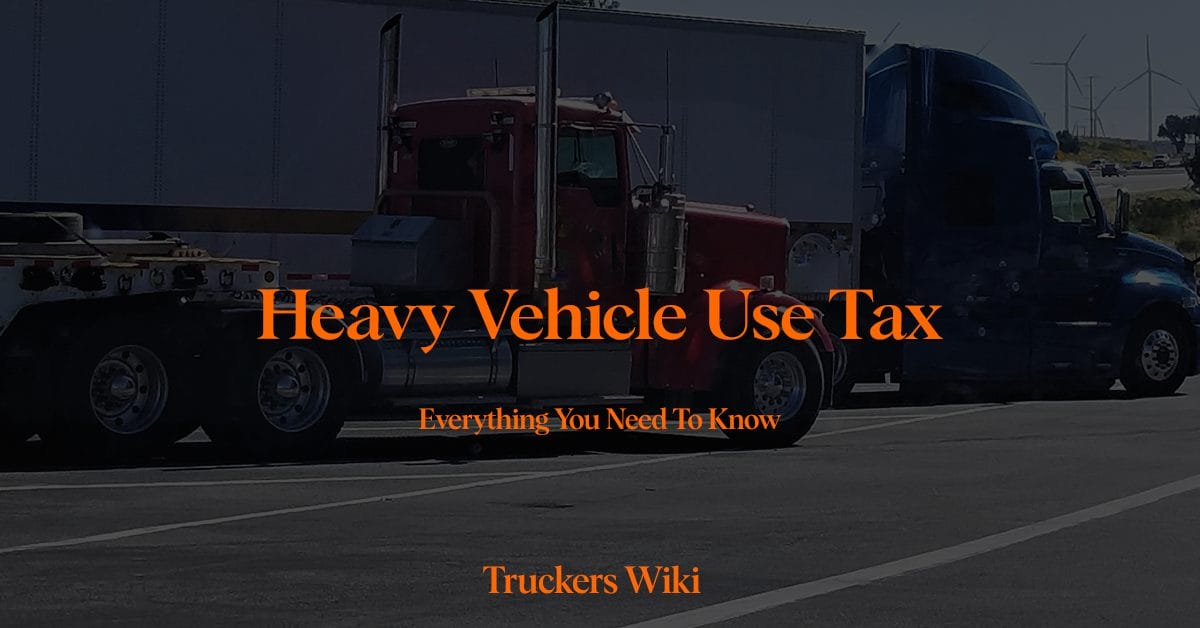
Table of Contents
What is Heavy Vehicle Use Tax – Form 2290
Heavy Vehicle Use Tax is a federal tax imposed on heavy vehicles that operate on public highways in the United States. This tax is primarily targeted at commercial trucks and buses with a gross weight of 55,000 pounds or more. The tax revenue generated from the HVUT is used to fund the maintenance and construction of highways and transportation infrastructure.
Applicability
The Heavy Vehicle Use Tax applies to heavy vehicles with a gross weight of 55,000 pounds or more that use public highways for transportation purposes. This includes a wide range of commercial vehicles such as trucks, buses, and recreational vehicles (RVs) that meet the weight criteria.
Tax Period
The tax period for HVUT runs from July 1st to June 30th of the following year, with a deadline for filing and payment set for August 31st annually.
If a vehicle is in operation during any part of this period, it is required to pay the tax for the entire period.
Filing and Payment Form 2290
To file the HVUT form, truck owners or operators need to complete IRS Form 2290, also known as the Heavy Highway Vehicle Use Tax Return. This form can be filed electronically through the IRS website or submitted by mail. Payment of the tax can be made using electronic funds withdrawal, electronic Federal Tax Payment System (EFTPS), check, or money order. You will find the form below.
Tax Rates
The tax rate is determined based on the gross weight of the vehicle. The tax rates are higher for heavier vehicles. For example, vehicles with a gross weight of 75,000 pounds or more have a higher tax rate compared to those with a gross weight between 55,000 and 75,000 pounds.
Exemptions
Certain categories of vehicles are exempt from the . This includes vehicles used for agricultural purposes on farms, vehicles used by the federal government, state or local governments, qualified blood collection vehicles, and vehicles with low mileage. These exemptions are meant to accommodate specific industries or purposes.
Vehicles used for 5,000 miles or less (7,500 for agricultural vehicles) annually are subject to the tax, although they may qualify for exemptions under certain conditions.
Proof of Payment
After filing and paying the HVUT, truck owners receive a stamped Schedule 1 as proof of payment. This document is important for vehicle registration and renewal. It is also required for some transactions, such as obtaining an International Registration Plan (IRP) license plate.
Learn about the International Registration Plan here.
Penalties for Non-Compliance
Failure to file and pay HVUT by the due date can result in penalties and interest charges. The penalty is typically a percentage of the total tax amount and increases with time. The IRS may also impose additional penalties for fraudulent or intentional non-compliance.
Use of Funds
The revenue generated from the Tax is used to fund highway and transportation infrastructure projects across the United States. These funds contribute to maintaining and building roads, bridges, and other essential transportation facilities that benefit both commercial and non-commercial vehicles.
State Regulations
While the HVUT is a federal tax, each state may have its own regulations or taxes related to commercial trucking and transportation. Trucking companies and drivers need to be aware of both federal and state requirements to ensure compliance.
Learn about Highway Use Tax here.
Documents & Links
Link to IRS Form 2290 Instructions
Here is a download link to the Form 2290 revision 2023077 (pdf)
IRS webpage on Form 2290.
Check this article if you are unsure if you need to pay this tax.
Listen to The Article Here
Tax Categories
Gross Taxable Weight
Below 55,000 lbs
55,000-75,000 lbs
Over 75,000 lbs
Heavy Vehicle Use Tax Rates
No Tax
$100 plus $22 per 1,000 pounds over 55,000 lbs
$550
Audio Article Heavy Vehicle Use Tax HVUT What is the
Last modified: February 5, 2024

